When you are there
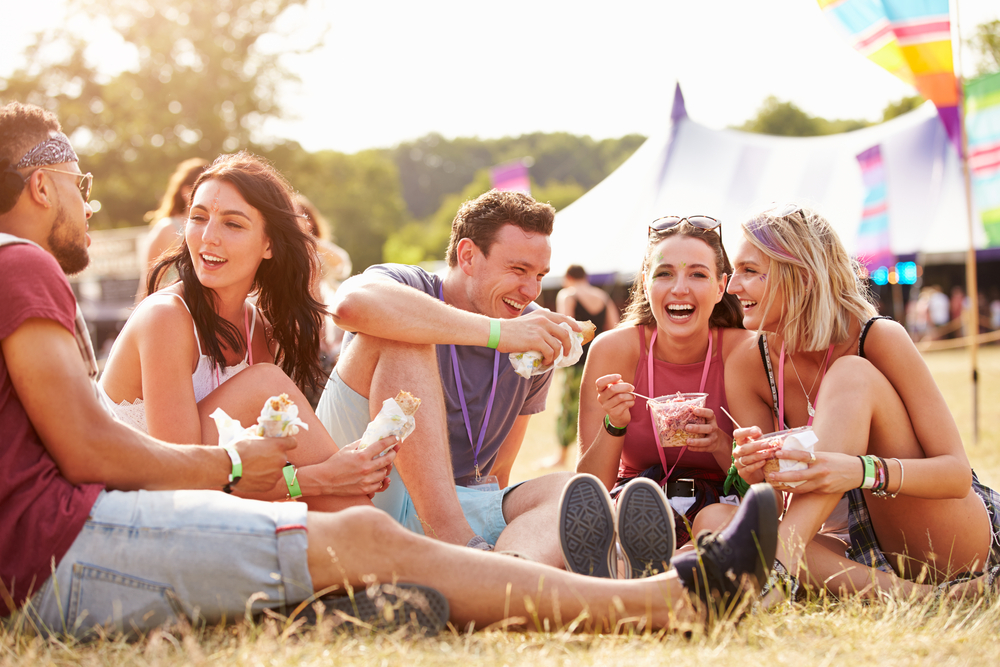
Once you’ve made it to your venue, you’re going to be eager to get right into the fun, and so you probably won’t want to think too much about your diabetes. However, there are a few things you really have to keep in mind. We’ve covered some of the basics below, and have asked an experienced festival-goer with type 1 diabetes to share their experiences too, which should help you plan ahead.
Medication
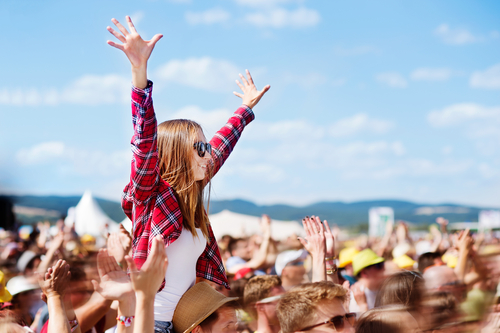
“The main thing is to take plenty of stuff with you – there’d be nothing worse than having to leave and go home early ‘cos someone pinched your kit or you’ve lost it! You can now get lockers to keep valuable things in. I don’t think I’d risk leaving my diabetes stuff in a tent“
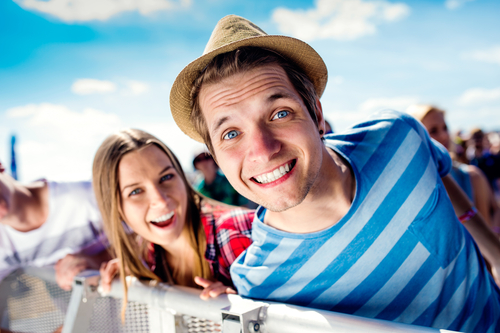
“For blood tests and injections I never go to the toilets – as the festival goes on they can get really mucky. I get my pals to stand around me and I inject into my tummy. I am a bit careful as if people see you injecting they mightn’t realise it’s insulin“
- Keep supplies safe – don’t leave them in your tent. You can keep them on you, or rent a locker for them.
- Keep your insulin cool – warm insulin starts to act faster and could cause a hypo by kicking in before you have had time to digest enough food to raise your blood glucose. You can buy cooling cases, such as FRÍO® wallets, for your supplies. Soaking the wallet in water will activate it and keep the wallet cool for at least 45 hours.
- Think ahead about how and where you’re going to inject. Bathrooms can be private, but they’re often dirty and busy, and you might still be queuing when you need to inject. You could find a quieter area near where you’re planning to be – particularly if you’ve got some friends around that are willing to huddle and offer you a bit of privacy.
- Have a plan for your used sharps. Getting rid of these on-site can cause a big safety hazard. Make sure you either take your needles home with you or use a needle clipper.
- You might also consider going to the medical or first aid tent. The staff there may be willing to store your insulin for you and give you a safe and private place to inject. They might also be happy to get rid of your sharps for you.
Food and drink
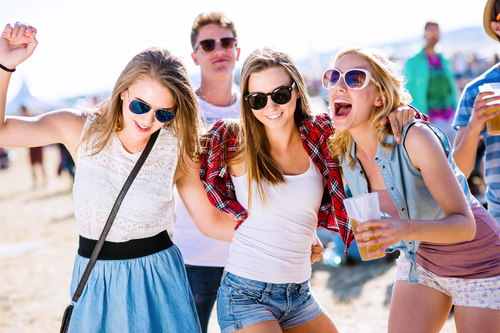
“Once I drank cider all day, another time I ate food and didn’t inject as I was embarrassed about too many people being around, and another time a pal was handing out sweets all day and I couldn’t refuse – but didn’t have a clue how much insulin to take. Try to keep track of what you are eating and drinking throughout the day to help with calculating your insulin dose.“
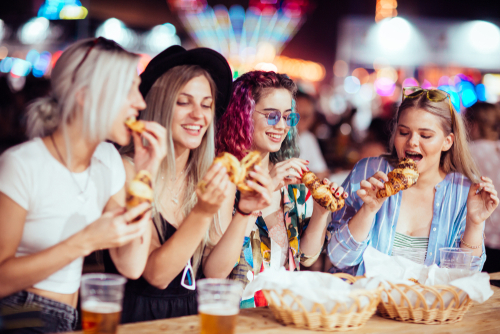
“I’ve also noticed you have to be careful with really fatty food as it can be slow to get absorbed, so if you’ve had insulin, you could go hypo soon after eating, but make your blood glucose go high a few hours later when the sugar from the food eventually hits your blood. It sounds a bit confusing but it’s true – and my diabetic nurse said that happens“
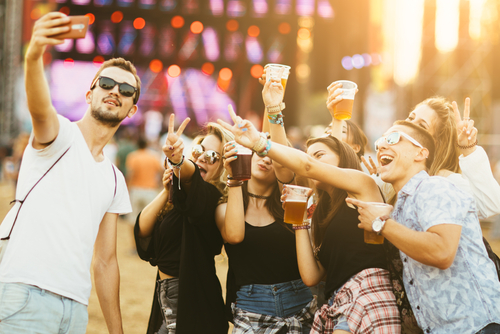
“I do drink all day but tend to have alcohol without sugar in it as I hate going high at festivals because you feel so rough – and I hate the toilet queues! I do test often as before I haven’t realised I’m going low (with being a bit drunk, being excited and dancing around, and also if it’s hot)“
- Going to festivals is meant to be a fun experience and for many people, drinking and eating is a big part of that. You don’t have to give that up because of diabetes, but you need to keep track of what you’re taking so you can take the right insulin dose.
- Talking to your friends about your diabetes can help – ask them to keep an eye on what you eat and drink and then you might be able to figure things out between you.
- High blood glucose will make you need to go to the toilet more often – that means a lot more time wasted standing in queues rather than enjoying yourself!
Blood Glucose
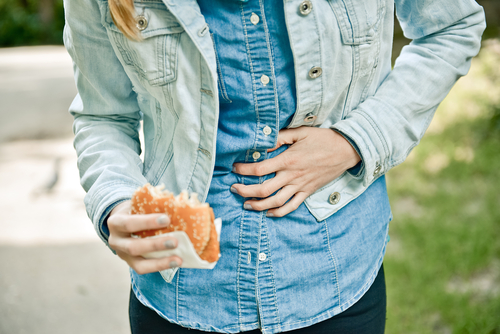
“I was sick a few years ago from eating something dodgy. My blood glucose went over 20, and I felt really rough. I did panic a bit but I had a ketone meter in my locker which was a relief“
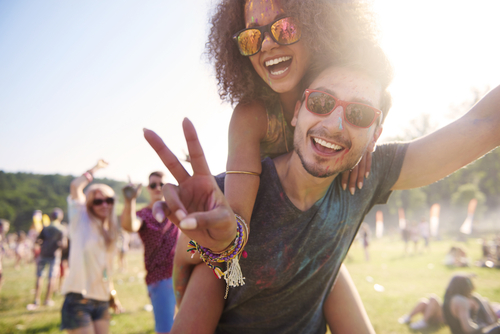
“The first aid people in the tents are really friendly and they’re happy to help – I had to go when I had food poisoning ages ago!“
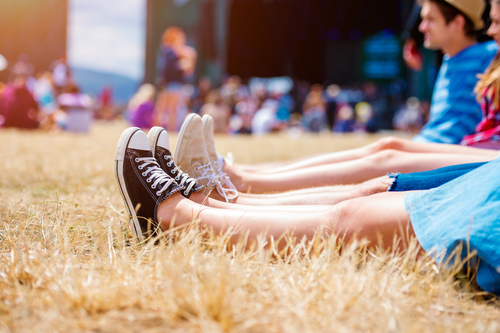
“You know how infections can cause high blood glucose levels? Well, if you get a blister or a cut to your foot, this can become infected really quickly and if your bloods are high it can get infected even quicker. If this happens you need to follow the sick day guidance. The thing is, it’s much better to prevent blisters and cuts from happening in the first place rather than deal with being unwell and having infections“
- Alcohol, sun and exertion can make it hard to tell what your blood glucose is doing. Pay close attention to how you feel – If you feel unwell it might be due to a hypo or it might be an unrelated illness that could impact your blood glucose and how well insulin will work for you.
- Carry hypo treatment and carb snacks, and make sure you know where your insulin is and how long it will take to get to. Food venues are often busy, and you don’t want to have a hypo because you’re stuck in a queue to buy something to eat.
- It’s always better to test and make sure you’re OK than to keep pushing yourself and risk missing out on the fun because you’re ill or need medical attention.
Illness & Injury
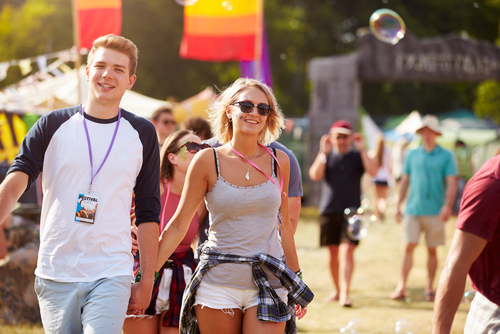
“I tend to be low rather than high at festivals and now know to cut down my insulin doses. You use up a lot of energy walking between the tents and stages, and if it’s muddy and raining it’s even harder! I usually go to bed shattered”
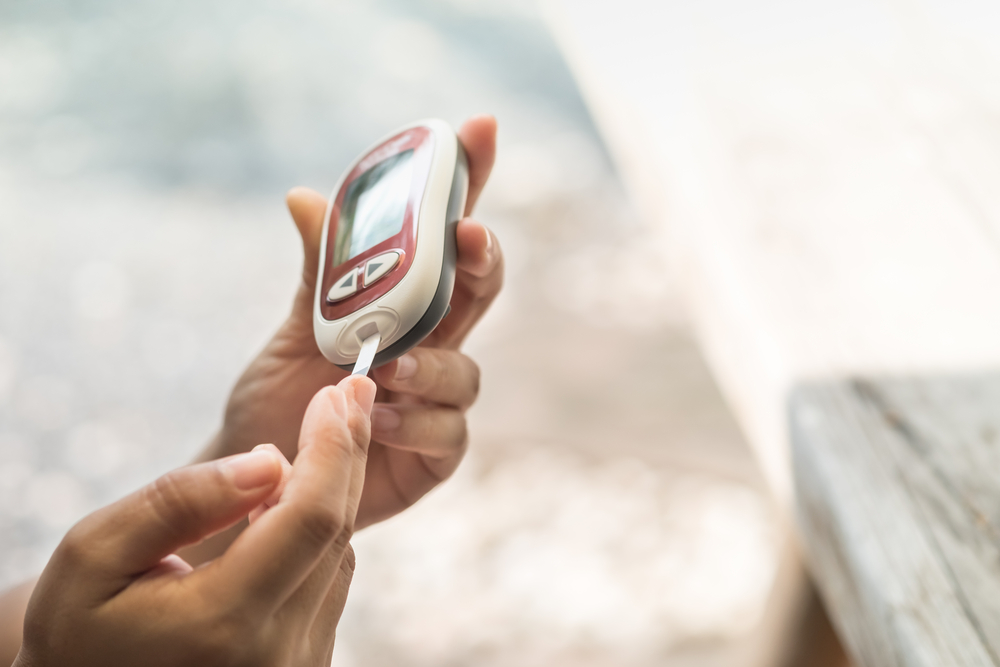
“I test quite a lot now too – sometimes you can’t tell what your blood glucose is if you’re feeling tired, thirsty, hungry, drunk, light-headed or if you’re going to the toilet a lot. The symptoms could be because you’re high, low, drunk or have had too much sun! I now know it’s safer to test than just guess… I have been caught out a few times just by thinking I know what’s wrong and getting it wrong!“
- Bring both a blood glucose meter and a ketone meter with you. If your blood glucose level is over 15 mmol/L, you should drink some water, take rapid-acting insulin and make sure you measure your ketones. If your ketones are above 0.6 mmol/L, you should keep checking your blood glucose regularly, making sure to drink water and take insulin. If your ketone levels are above 1.5 mmol/L, you should try to find a doctor immediately – go to the nearest first aid tent.
- If it’s hot and sunny, make sure you drink some water and use sunscreen. Sunburn can cause dehydration, which in turn can increase your blood glucose levels.
- If you do get ill, it will affect your blood glucose and how your insulin works – remember to follow your sick day guidelines.


